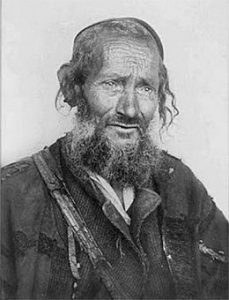
The Arabs, Moors, and writers of Sudan attribute to the Jews of ancient Black Africa the establishment of the first empires, “the construction of the first public buildings of the country, the construction of the first canals and irrigation systems, and the institution of an economic and social regime that still exists in all communities of the Sahara. How can we explain the emergence and hegemony of black Jews and their leadership over tribes? The answer is simple: The Jews arrived in western Sudan from the north and east of Africa as a result of a chain of migrations, commercials and persecutions. Through time, the Jews had settled among the most educated peoples. They adopted new methods that were different from other people and left their fingerprints on the material, educational and moral plane of the people with whom they lived. For many centuries Black Jews had to use their physical and psychological assets extensively. They could not afford to be complacent or apathetic (amorphous, inactive); they were hated, so apathy could mean cultural stagnation or death. Shortly after 300 AD, Jews imported to West Africa quality materials in the educational, cultural and moral fields and this cultural advance was only duplicated or surpassed by the rise of leader Mahometan Mansa Mussa Kankan of Mali in 1312 AD. In the third and fourth centuries, the culture of Africans on the West Coast did not surpass that of Africans on the North and East coasts. Black Jews had an advantage over African tribes: they carried their culture, their history, their laws and written documents with them, which gave them an unrivaled advantage for the development of a superior social organization. Due to the stability of Black Jewish culture, Jews were not absorbed by the native population. In fact, it was the Jews who absorbed some of the indigenous tribes. The Jews used all the opportunities; they were industrious and skillful: in the Ghanaian Jewish states could have found kings, princes, governors, generals, secretaries, treasurers, tax agents, judges, architects, engineers, doctors, historians, interpreters, mathematicians, jewelers, sculptors, builders , carpenters, painters, goldsmiths, leatherworkers, potters, gunsmiths, saddlers, blacksmiths, farmers, etc …
